- සි
- த

- Address : Bathalagoda, Ibbagamuwa, Sri Lanka
- E- Mail : rrdi@doa.gov.lk
- Telephone : +94 372 258561
- Fax : +94 372 259881
Rice In Sri Lanka - Rice Diseases
False smut
Causative agent
Fungus, Ustilaginoidea virens
Plant parts and life stages affected
Mature panicle and grains
Symptoms
This disease is considered as an omen of a good harvest, as the factors that favour this disease will also favour a good yield.
Disease symptoms start to show when the grains get mature. When the grains are full, the pericarp splits a little bit, which facilitates the causative agent to enter and develop.
Seed coat remains green while inside the grain, the disease develops forming a large orange to brown-green fruiting structures
This could be observed in one or more grains of the mature panicle.
Later the orange covering ruptures exposing a mass of greenish-black spores
The grain is then replaced by one or more sclerotia.
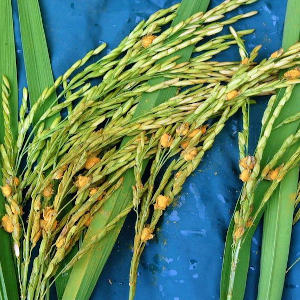
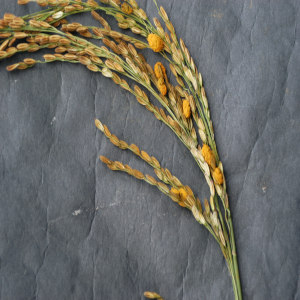
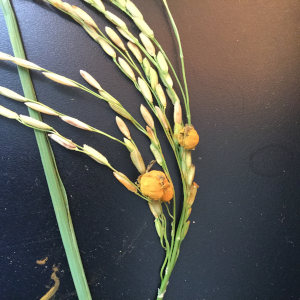
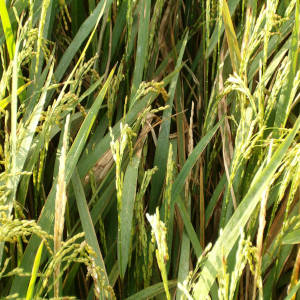
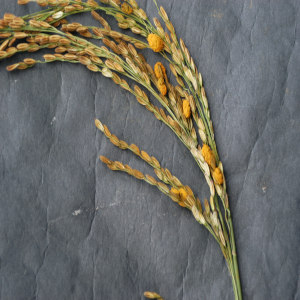
Conditions that favour the disease
Environmental temperatures within 25-35 OC
High humidity
Rain and winds during flowering stage
Excessive use of nitrogen fertilizer
Higher plant density
Weeds
Susceptible varieties
Bw 367, Bg 403
Disease Management
Within the crop season
Application of urea in recommended dosages or application of urea based on leaf colour chart.
If the crop is infected, following management options should be applied for the next season
Use of certified seed paddy free from the disease
Addition of burnt paddy husk (253 kg per acre) to the soil during land preparation.
Abstain addition of disease infected.
Maintaining an average level plant population in the field
